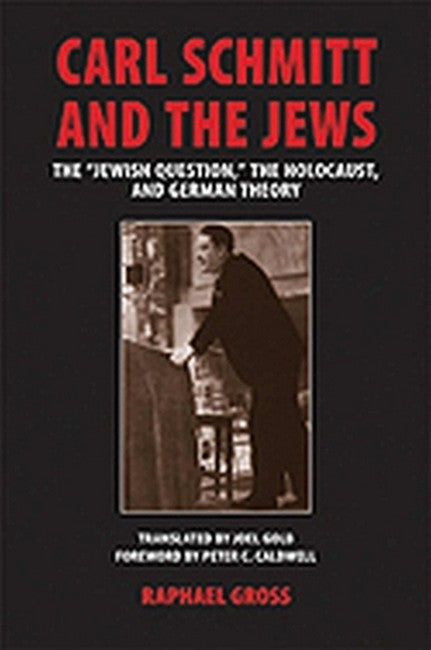Raphael Gross is director of the Leo Baeck Institute in London, director of the Jewish Museum in Frankfurt, and reader in history at the University of Sussex. Joel Golb is an independent editor and literary historian. He lives in Berlin.
Request Academic Copy
Please copy the ISBN for submitting review copy form
Description
"By removing Carl Schmitt into the nineteenth century discourse on Emancipation, Raphael Gross lays open the very meaning of the notorious legal scholar's perception of the Jews. A brilliant undertaking in the history of ideas."--Dan Diner, Leipzig University and Hebrew University, Jerusalem "Gross's study not only documents, analyses, and highlights Schmitt's anti-Semitism, but it also demonstrates in great and nuanced detail how his anti-Jewish attitudes permeated the very structure and grounds of Schmitt's thought and categories."--Steven E. Aschheim, Hebrew University, Jerusalem "No one interested in Carl Schmitt can afford to ignore Raphael Gross's powerful discussion of how intimately linked were Schmitt's anti-Semitism and his political theory. Gross persuasively argues that Schmitt's post 1933 writings on the "Jewish" origins of universalism and positivism had a central importance for both Nazi aims and his work as a whole. A new Afterword demonstrates that Gross's work has elicited a broad discussion and inserts his own moral and intellectual voice into contemporary debates."--Anson Rabinbach, Princeton University "Gross deserves credit for disclosing new documentation, providing certain important insights, and demanding that scholars seriously confront and explain Schmitt's anti-Semitism."--Joseph W. Bendersky, Journal of Central European History

